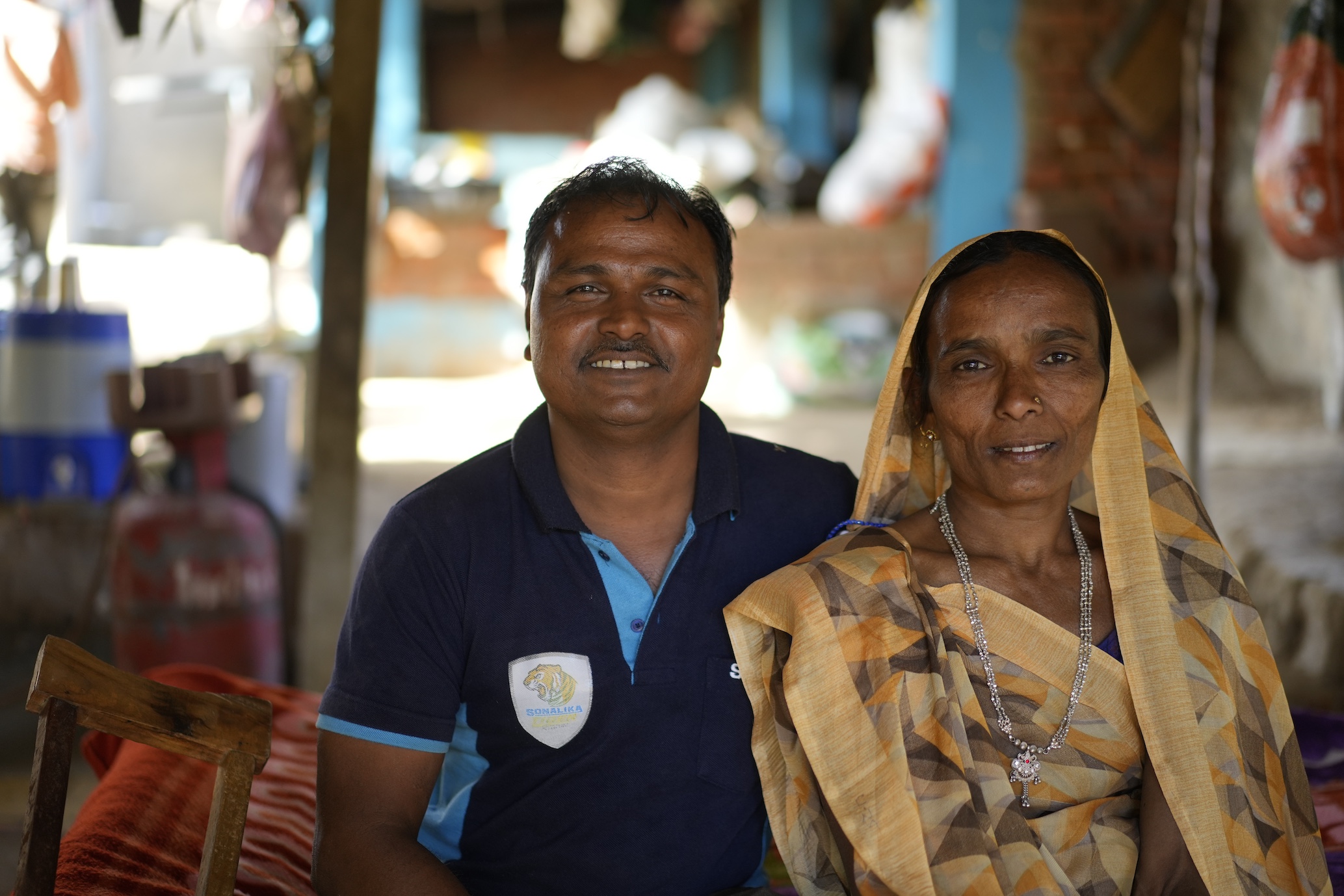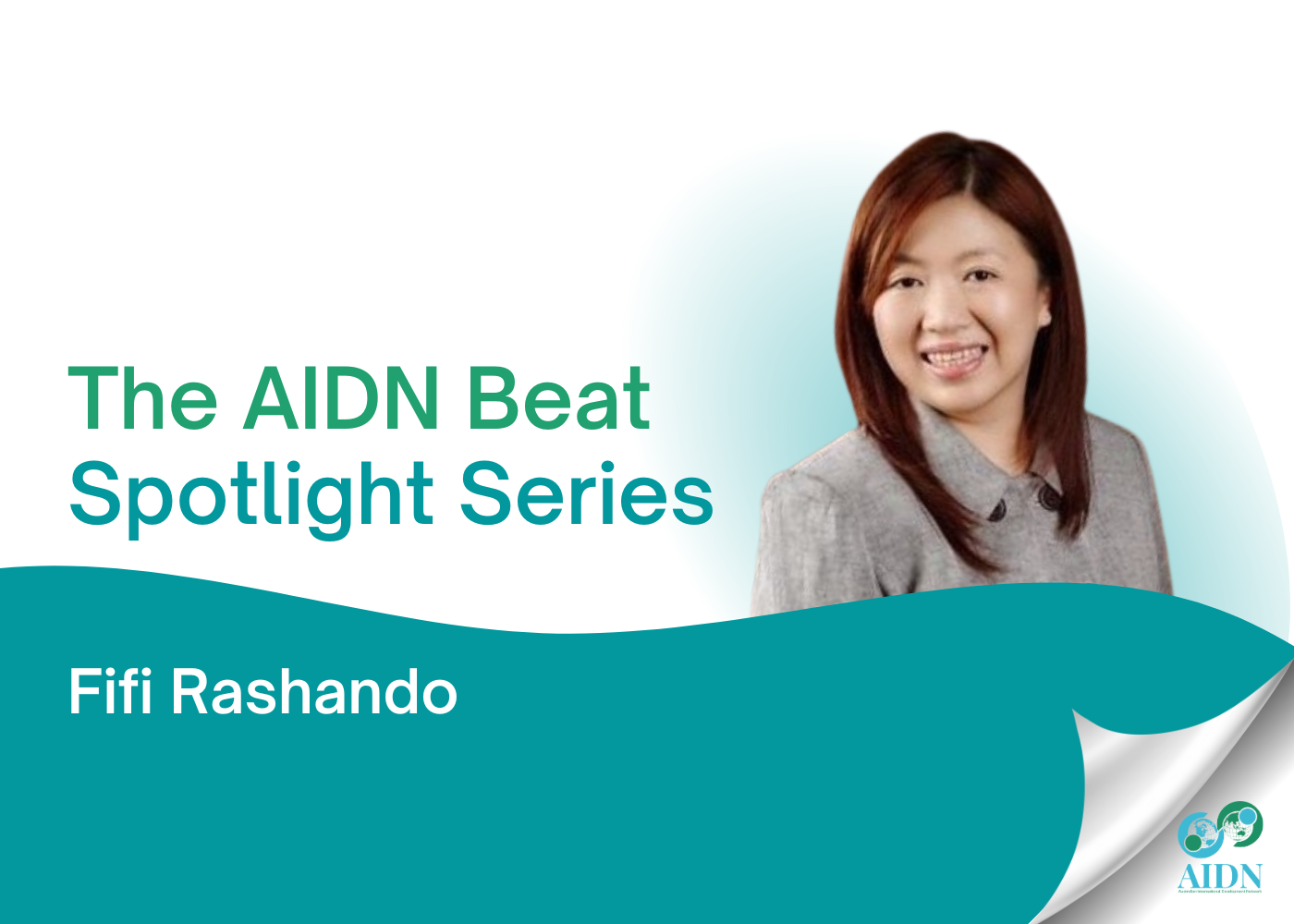Fifi Rashando
How long have you been involved in the international development sector, and what first inspired you to enter the sector?
I have been working in inclusive investing, international development and humanitarian sectors for over 23 years. I have always been driven by the need to unlock meaningful change for marginalised communities. My early career was shaped by experiences with David Bussau (the founder of Opportunity International Australia (OIA) and a pioneer of microfinance who started his journey by giving a loan of $50 to a Balinese man in the 1970s) and the Opportunity International Australia team in disaster-recovery regions.
This role illuminated to me the power of entrepreneurship to uplift communities. Even today, as someone who’s navigated disability, gender and racial barriers myself, I remain moved by David’s orphan-to entrepreneur story and the boundless potential it represents.
Since then, I have worked in various roles in the international development sector, and have continued to be inspired to utilise my strengths to champion inclusive economic growth, equal opportunities to access finance, education, market, health services, and technology, whilst assisting marginalised communities to realise their potential.

Photo of an Indonesian trip with David Bussau – a meeting with Mr Alwi Shihab, Indonesia Minister of Social Welfare to discuss rebuilding the livelihoods of the marginalised, post tsunami victims in Banda Aceh.
What have been the biggest changes you have witnessed throughout your time in the development sector, specifically in relation to your area of expertise?
Throughout my career in the international development sector, I have witnessed the rise of values-driven and socially conscious investors seeking social impact. However, to be effective moving forward, international development practitioners will need to learn how to more effectively collaborate with the private sector to drive progress toward an inclusive society and address climate change, leveraging each other’s strengths. The private sector lacks experience with marginalised communities, while humanitarian practitioners require entrepreneurial solutions, particularly in crises. Integrating humanitarian and strengths-based approaches will be key to unlocking opportunities for marginalised communities, especially women and people living with disabilities, and protecting them.
If you could see one change in the international development sector occur tomorrow, what would it be and why?
If I could see one change happen in our sector tomorrow, it would be a greater focus on women and people with disabilities in programming – in order to address intersectional vulnerabilities. Globally around 740 million women are still unbanked and excluded from financial services. Moreover, as the largest global minority group, 15% of the global population has disabilities. Unfortunately, people with disabilities in developing or low-income countries often lack financial access, with up to 80% facing infrastructure, discrimination, and literacy barriers. This exclusion is pronounced in South Asia and Indonesia, where 80-90% and 70% of people with disabilities, respectively, are excluded from formal financial services.
Whilst there is a long way to go, I am proud to get to continue this work in my current role at Opportunity International Australia. In particular, at the moment, we are working with providers like Uplift Mutuals to enhance affordable healthcare access for low-income Indian populations, with the ultimate goal of contributing to a range of Sustainable Development Goals, specifically good health and well-being, gender equality, and reduced inequalities. Between March to June 2024, Uplift’s partnership with a Disabled People’s Organisation resulted in 200 individuals with disabilities gaining affordable health insurance, paving the way for solutions tailored to their needs.

Anjeeta and her husband Vinubhai run a successful snack stall and tailoring business in the Gujarat region in India. The couple, who both have mobility issues, started their enterprises with help from a micro loan from Opportunity International Australia’s local partner.
AIDN’s ethos is “more” and “better” international giving from Australians. What does “more” or “better” international giving look like to you?
In addition to my current role with OIA, I have had the opportunity to work as a Board Director for both the Leprosy Mission and ADDC. Through these roles, I have seen first hand the impact that Australian giving can make in marginalised communities, particularly for women and people living with disabilities in the Asia-Pacific region.
In an age of rising global instability, there is certainly a need for more giving from Australian markets moving forward. Through increasing their investment in global philanthropy, Australians can drive meaningful change, spark innovation and instigate strategic partnerships that mobilise resources, address systemic disparities, and create a more just and inclusive world where marginalised groups, including women and people living with disabilities, can thrive.
Fifi Rashando
With a passion for advancing inclusive net-zero economies, Fifi leverages her 20+ years of governance and leadership experience in the inclusive investing, international development and humanitarian sectors to ensure marginalised communities, particularly women and people living with disabilities, have equal access to finance, markets, and technology. Recognized for her expertise in social impact, inclusive finance, and responsible investing, she advises financial service providers, social enterprises, and B2B companies on aligning products with the UN SDGs.
Fifi Rashando is the GEDSI (Gender, Disability, and Social Inclusion) and Safeguarding Manager at Opportunity International Australia, an international development organisation with a track record of empowering over 6 million marginalised women entrepreneurs in Asia, delivering innovative financial services, such as social impact investing, small business loans, savings, insurance, and training. Fifi collaborates with the passionate Opportunity team to strengthen GEDSI and safeguarding practices across financial service providers, development organisations, and stakeholders in the financial inclusion ecosystems.
Fifi is also the Australian Disability & Development Consortium (ADDC) executive committee member, representing Opportunity and sharing a commitment to combat exclusion and promote equal opportunities for people with disability. ADDC advocates for integrating disability rights into Australian development programs, ensuring inclusive policies and greater disability equity globally.
Image credit #1: Fifi Rashando, Opportunity International Australia
Image credit #2: Nicole Clements, Opportunity International Australia
